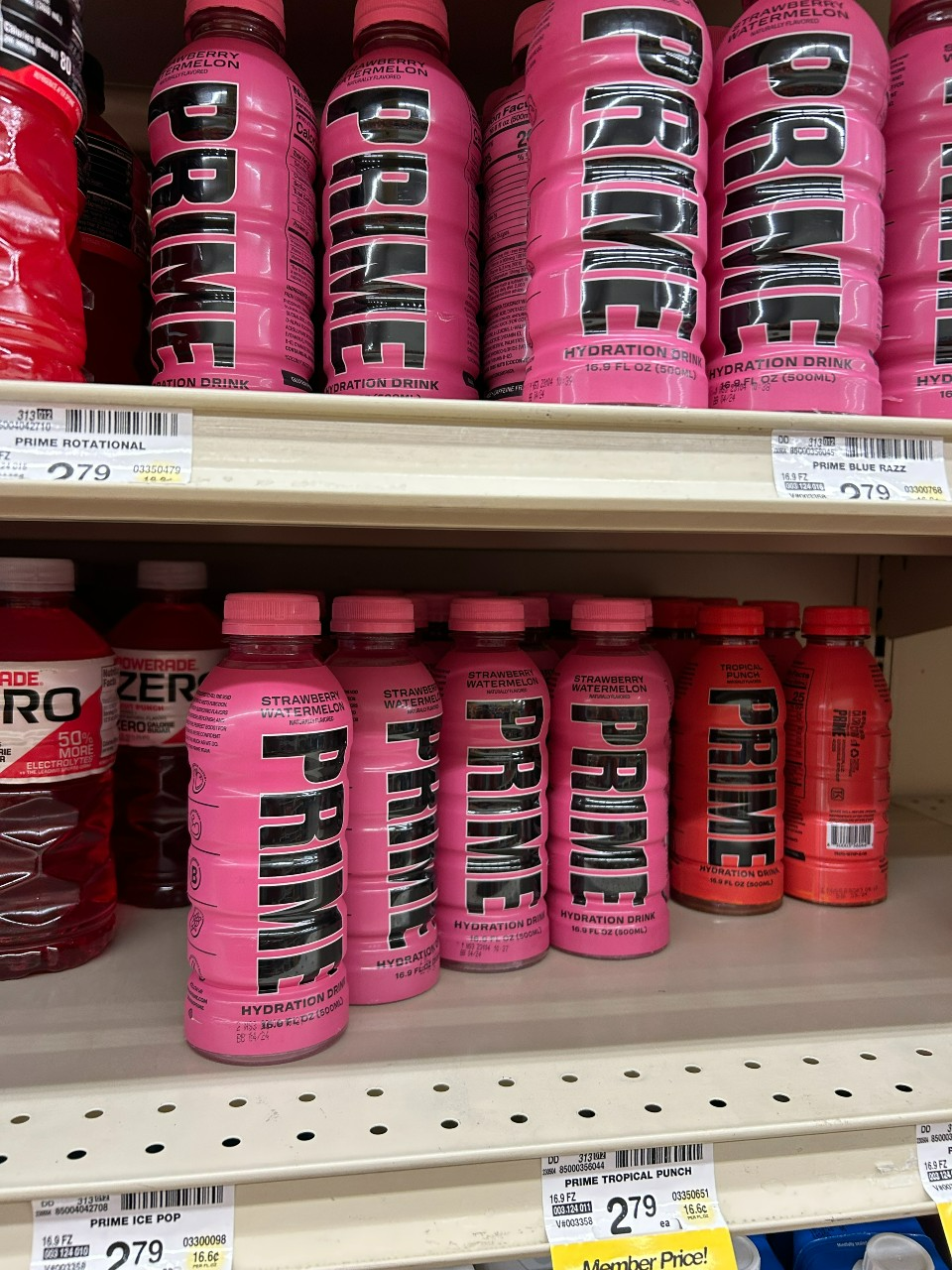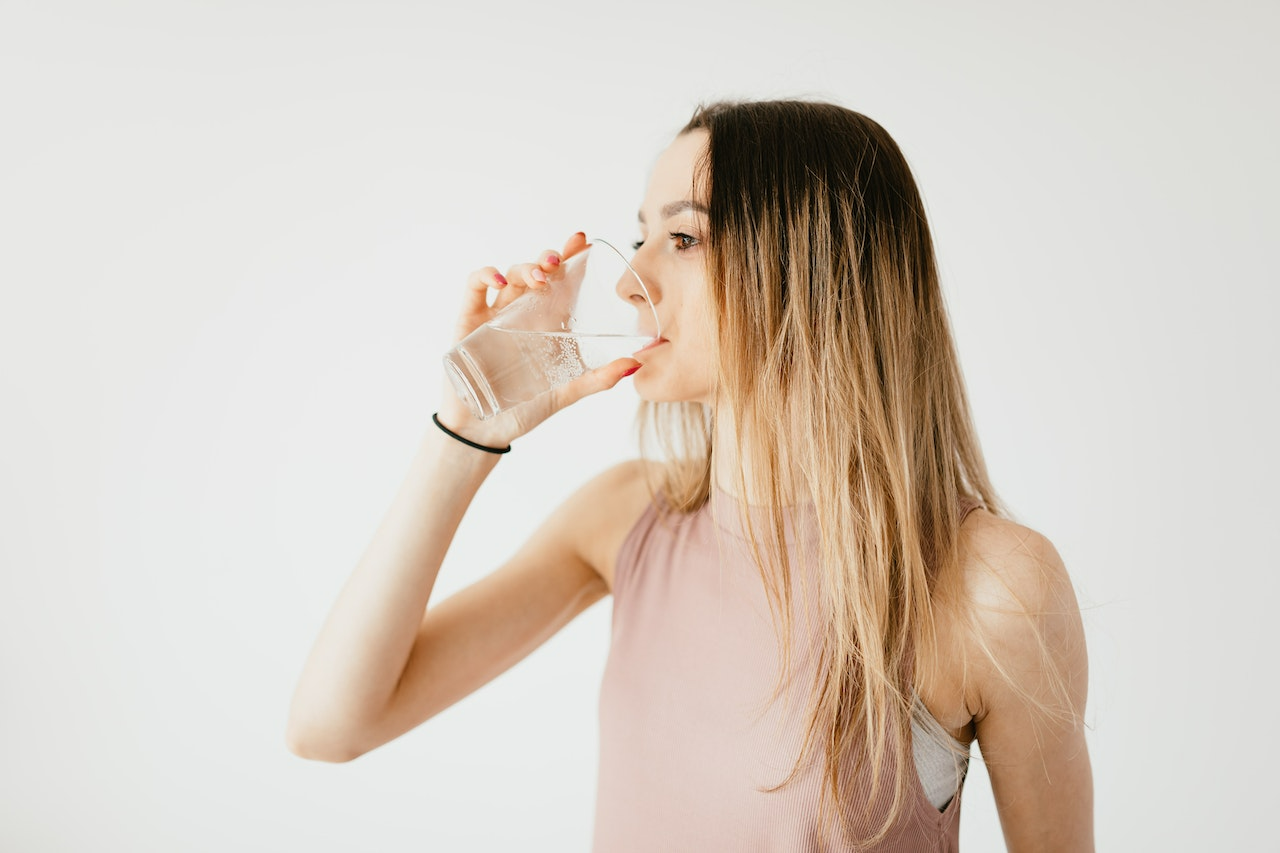Is PRIME HYDRATION Bad For you?

Prime Hydration Drink is a well-known beverage that prides itself on offering refreshment, replenishment, and refueling benefits. However, it is often mistaken for its closely resembling counterpart, Prime Energy, due to similar marketing tactics. While Prime Energy contains high levels of caffeine, Prime Hydration, on the other hand, is packed with artificial sweeteners. To gain a deeper understanding of why Prime Hydration may not be the best option for your overall health, let's delve into its ingredients and explore the potential negative effects they can have on your body. Discover more about the specific ingredients found in Prime Hydration Drink and their potential drawbacks in this comprehensive analysis. If you want to read about Prime Energy, visit here.
- Firstly, Prime Hydration Drink contains Manufactured Citric Acid (MCA). Citric acid, a natural compound found in various citrus fruits, boasts numerous health benefits. However, it's essential to differentiate between naturally occurring citric acid and its synthetic counterpart known as Manufactured Citric Acid or MCA. While the natural form offers health advantages, manufactured citric acid is commonly used as a flavoring and preservative in many processed foods and beverages, including popular sports drinks like Prime Hydration. Unfortunately, the synthetic version does not provide the same health benefits as its natural counterpart and has even been associated with gastric distress and digestive issues in some individuals. Given this, you may wonder if there has ever been a chemical food preservative that is genuinely beneficial for your well-being.
- Another concerning ingredient is sucralose, an artificial sweetener found in Prime Hydration Drink. Sucralose has been linked to various health concerns, including disruption of gut bacteria, increased appetite along with weight gain, and potential negative effects on blood sugar regulation.
- Prime Hydration Drink also includes synthetic beta carotene for color. While beta carotene itself is a natural compound found in fruits and vegetables, its isolated synthetic form used as a food additive may not have the same health benefits. High doses of synthetic beta carotene supplements have been associated with an increased risk of lung cancer in certain populations.
- Additionally, Prime Hydration Drink contains artificial vitamins such as retinyl palmitate (vitamin A), pyridoxine hydrochloride (vitamin B-6), and cyanocobalamin (vitamin B-12). While these vitamins are essential for proper bodily functions, relying on synthetic forms rather than obtaining them from whole foods may not provide the same benefits. Excessive intake of certain synthetic vitamins can even lead to toxicity. Safety concerns have been raised about the use of synthetic cyanocobalamin B-12 in food and drinks, including by human biologist Gary Brecka during a recent appearance on the Joe Rogan show, see video below.
- Furthermore, Prime Hydration Drink includes additives like acesulfame potassium, which is an artificial sweetener, and dipotassium phosphate, a food additive used as a stabilizer. These additives have been associated with potential health risks, including allergic reactions and disturbances in kidney function.

human biologist - Gary brecka on Products containing Cyanocobalamin (Vitamin B12)
Drinking artificial beverages like Prime Hydration on a daily basis, which contain artificial sweeteners like sucralose, synthetic additives and "natural flavors", can have various effects on your body. Let's explore some of the potential consequences.
One major concern with artificial sweeteners like sucralose is their impact on blood sugar regulation and metabolic health. Despite being low in calories or calorie-free, artificial sweeteners can still trigger an insulin response in the body. This insulin response may confuse the body's natural ability to regulate blood sugar levels, potentially leading to insulin resistance over time. Insulin resistance is associated with an increased risk of conditions such as type 2 diabetes and metabolic syndrome. Furthermore, frequent consumption of artificial drinks can create a taste preference for overly sweet flavors. This can lead to a decreased desire for healthier, naturally sweetened foods and beverages, contributing to an imbalanced diet. Additionally, some studies suggest that artificial sweeteners may alter gut microbiota, which could have implications for overall gut health and digestion.
NATURAL FLAVORS MEANING
Prime Hydration Drink is known for its inclusion of "natural flavors" in its ingredients. However, it's important to understand the potential side effects associated with this vague and often misleading term. While the term "natural flavors" may imply that these flavors come from natural sources, it doesn't provide specific details about the ingredients or the manufacturing process involved. The FDA defines natural flavors as "substances derived from plant or animal matter," but it allows for a wide range of synthetic processes and chemicals to be used in their creation. The lack of transparency surrounding natural flavors raises concerns as it can mask the use of artificial or chemically altered ingredients. In the case of Prime Hydration Drink, a "natural flavor" could be produced using high heat or chemicals, deviating from what consumers typically consider natural.
Additionally, certain natural flavors may be derived from ingredients that are not safe for consumption in their natural state, such as specific essential oils or chemical extracts. While regulatory agencies generally consider natural flavors safe for consumption, some individuals may experience adverse reactions or allergies to these ingredients. To ensure their well-being, consumers should be diligent in understanding what they consume and should carefully read labels and ingredient lists before purchasing or consuming products containing natural flavors. The use of natural flavors in products like Prime Hydration Drink highlights the necessity for greater transparency and accountability in the food and beverage industry. Consumers have the right to know precisely what they are consuming, and companies should be held to higher standards regarding the quality and safety of their products.
MICROPLASTICS IN SINGLE USE PLASTIC BOTTLES

A recent study has revealed that bottled water, a popular alternative to tap water, may contain microplastics. The study found that many of these microplastics were sourced from the type 1 plastic that is commonly used to make these bottles. This is concerning, as the same type of plastic is also used to make bottles for Prime Hydration and other similar products. While the amount of microplastics that leached into the water from each bottle may be small, the long-term health effects of consuming these particles are not yet fully understood.
The study highlights the need for greater regulation and monitoring of plastic production and usage, and for consumers to be aware of the potential risks associated with consumption of products that use Type 1 single use plastic bottles that you find on every grocery store and convenient store shelf. To reduce exposure to microplastics, individuals can opt for reusable water bottles made of materials such as stainless steel or glass, and limit their consumption of single use plastic-packaged beverages.
Healthy Alternatives To PRIME Drink
If you are looking for a healthy alternative to Prime Hydration Energy Drink, drinking filtered water is an excellent choice. Not only does water hydrate your body and keep you alert and focused, but it also helps remove contaminants from your drinking water.
Filtered water is free from harmful chemicals, pollutants, and toxins that can be found in unfiltered tap water. It also has a clean, refreshing taste that can satisfy your thirst without the need for added sugars or flavors.

In addition to filtered water, there are several other healthy alternatives to energy drinks for adults:
- Green Tea: Green tea made with filtered water is a natural source of caffeine and antioxidants. It can boost energy levels and improve mental alertness without the negative side effects of artificial sports drinks.
- Fresh Fruit Juice: Fresh fruit juice is a great source of vitamins, minerals, and antioxidants. It can provide a natural energy boost and help reduce inflammation in the body.
- Coconut Water: Coconut water is a natural source of electrolytes, which can help rehydrate your body and boost energy levels. It also contains potassium and magnesium, which can help improve muscle function and prevent cramps.
- Herbal Tea: Herbal teas made with filtered water such as chamomile, peppermint, and ginger can provide a calming effect and help reduce stress and anxiety. They also have a variety of health benefits and can boost energy levels without the use of caffeine.
- Maple Water: Maple water offers several benefits, such as being a natural and refreshing source of hydration due to its high water content and essential minerals. It also contains natural antioxidants and a touch of maple flavor, making it a healthier alternative to artificial sport drink beverages.
- Lemon or Lime Water: Drinking filtered water with organic lime or organic lemon squeezed into it provides a refreshing and flavorful twist while offering additional benefits. The citrus fruits' natural acidity can help promote digestion, boost vitamin C intake, and add a burst of flavor without adding calories or sugar.
is prime hydration good for kids

Allowing kids to drink Prime Hydration Drink is not a good idea due to several reasons. Firstly, Prime Hydration Drink contains artificial sweeteners and flavors, which can potentially disrupt children's developing taste preferences and lead to a preference for overly sweet or artificial-tasting foods and beverages. This can hinder their willingness to consume healthier options and contribute to an imbalanced diet.
Moreover, the long-term health effects of regularly consuming artificial additives and sweeteners, especially during crucial growth stages, are not well understood. Therefore, it is advisable to prioritize water and natural, nutrient-rich beverages for children's hydration needs, promoting their overall health and well-being.

Sources:
Sports Drinks and Energy Drinks for Children and Adolescents: Are They Appropriate?
Is 'Natural Flavor' Healthier Than 'Artificial Flavor'?
Are ‘Natural Flavors’ Really Natural?
Synthetic Polymer Contamination in Bottled Water
PRIME HYDRATION is a trademark owned by Prime Hydration LLC
